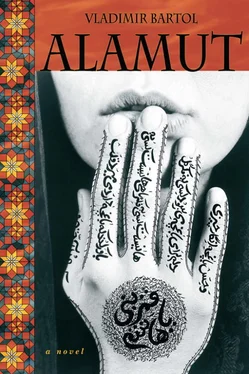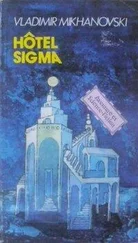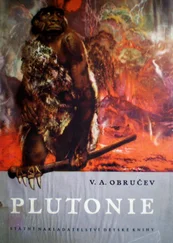Vladimir Bartol - Alamut
Здесь есть возможность читать онлайн «Vladimir Bartol - Alamut» весь текст электронной книги совершенно бесплатно (целиком полную версию без сокращений). В некоторых случаях можно слушать аудио, скачать через торрент в формате fb2 и присутствует краткое содержание. Город: Berkeley, Год выпуска: 2012, ISBN: 2012, Издательство: North Atlantic Books, Жанр: Историческая проза, на английском языке. Описание произведения, (предисловие) а так же отзывы посетителей доступны на портале библиотеки ЛибКат.
- Название:Alamut
- Автор:
- Издательство:North Atlantic Books
- Жанр:
- Год:2012
- Город:Berkeley
- ISBN:9781583946954
- Рейтинг книги:2.8 / 5. Голосов: 5
-
Избранное:Добавить в избранное
- Отзывы:
-
Ваша оценка:
- 60
- 1
- 2
- 3
- 4
- 5
Alamut: краткое содержание, описание и аннотация
Предлагаем к чтению аннотацию, описание, краткое содержание или предисловие (зависит от того, что написал сам автор книги «Alamut»). Если вы не нашли необходимую информацию о книге — напишите в комментариях, мы постараемся отыскать её.
Alamut — читать онлайн бесплатно полную книгу (весь текст) целиком
Ниже представлен текст книги, разбитый по страницам. Система сохранения места последней прочитанной страницы, позволяет с удобством читать онлайн бесплатно книгу «Alamut», без необходимости каждый раз заново искать на чём Вы остановились. Поставьте закладку, и сможете в любой момент перейти на страницу, на которой закончили чтение.
Интервал:
Закладка:
In Baghdad the intrigues began on the very day of the sultan’s death. Suddenly supporters of every possible pretender to the Iranian throne began to sprout up. Nearly each of the dead sultan’s brothers and sons had his own advocate, all of whom immediately began agitating for their respective candidates and pressuring the poor caliph to lend his support. But with time it became apparent that there were really only two opposing camps: Barkiarok’s and Mohammed’s. Toward the end the sultan had been leaning toward the latter, and this is precisely why the sultana and Taj al-Mulk now had the advantage. All of the many princes and grandees, high officials and religious leaders who had been overshadowed and hampered by the murdered grand vizier’s ruthless and imperious rule now came out in favor of the underaged Mohammed. Soon they managed to win the caliph to their side. The struggle between the two camps grew more and more embittered. Finally, Barkiarok’s supporters began to feel threatened in Baghdad. Some of them hid, while others fled the city. Mohammed’s supporters waited eagerly for news from the sultana and Taj al-Mulk. They kept doing their utmost to pressure the weak caliph into proclaiming their candidate sultan, thus dealing the other side a mortal blow.
Together with the news of the sultan’s death, the units that were gathering around Nehavend and Hamadan and were meant to battle the Ismailis also received an order to abandon their original plan and set out for Isfahan. When they were halfway there, they were met by emissaries of the sultan’s widow. The commanders were given extravagant gifts in her name, and the men were promised double their usual pay if they agreed to support her son. Other messengers set out for Baghdad with promises and priceless gifts to win the caliph to their side so he would proclaim Mohammed as sultan and decree that all of Iran should pray the khutba for him. In the meantime, Barkiarok arrived in Isfahan with part of his forces. He had no idea yet that his father had been murdered in the same fashion as the grand vizier. He came upon a scene of utter confusion. Soldiers were streaming into the city from all sides and proclaiming the underaged Mohammed as sultan.
Barkiarok realized he had arrived several days too late. He tried to offer some resistance to the sultan’s widow and her vizier. But just then the news hit from Baghdad that the caliph had proclaimed Mohammed the new sultan. He quickly assembled the remainder of his forces and hurried with them to Sava, where, as he expected, he found refuge with the emir Tekeshtegin, who had been his friend since earliest boyhood.
Now he had to establish contact with his supporters and all those elements that were unhappy with the new sultan. Five of Nizam’s sons joined him, and he immediately named one of them his vizier. Suddenly he was in command of a sizable army.
Amid the general chaos the sultana and her vizier had thought of everything, with one exception—their erstwhile ally, Hasan. Emir Tekeshtegin and Muzaffar were good neighbors. Barkiarok now worked through Muzaffar to establish contact with the leader of Alamut and the Ismailis.
CHAPTER TWENTY-ONE
With the Seljuk realm—until yesterday one of the most powerful empires on earth—now in ruins, and with the sons, brothers, uncles and nephews of the murdered sultan battling each other for the throne, and with no one anywhere in Iran quite clear who was in charge, the institution of the Ismailis stood as firm and unshakable as the rock on which Alamut was built.
The news of the death of Sultan Malik Shah was cause for genuine celebration among Hasan’s supporters. The lands from Rai, Rudbar and Qazvin to Firuz Kuh, Damagan and all the way to Girdkuh and Gonbadan were now safe, and Ismaili messengers, and even whole divisions, could practically stroll from fortress to fortress. A new wave of believers came streaming into Alamut, seeing it as the best guarantee of their religious freedom and well-being. The fortress itself soon became too small for them. Dai Abu Soraka chose the strongest and most capable of them to keep at the castle. He had the rest swear their allegiance, gave them gifts, and—pledging that they would be fully protected by the supreme leader—he let them return to their homes. After nearly a century, practically the whole north of Iran was at last free to venerate Ali in public and to recognize the caliph of Cairo as its spiritual leader.
Hasan’s network of informants was built to an even greater level of perfection than before. He was constantly receiving news about the struggles and battles for the Iranian throne. He learned that the caliph had proclaimed Mohammed as the new sultan and that Barkiarok had returned to Isfahan. He gained a precise sense of how the pillars of Seljuk rule, which he had undermined, were swaying. The dream of his distant youth had been fulfilled.
“All of this is like a fairy tale,” he said to himself. “If I myself weren’t the cause of all these convulsions, I wouldn’t believe them. It’s true, some wishes have a miraculous power. They function as though they had substance, as though they were a hammer made of actual steel.”
He was conscious of a strange emptiness, as though everything around him had fallen silent all at once. Something huge, terrible and yet beautiful had left him and found its place in the sun outside of him. He felt homesick for his strong, restless days. Now the moment had come for him to inspect his edifice one more time, distinguish it from everything that surrounded it, define the limits of its power, and ensure its survival for that time when he was no longer.
And just as he had half a year ago, at the beginning of winter, reis Abul Fazel Lumbani arrived at the castle from Rai with an important message. He reported that the emir of Sava, Tekeshtegin, had taken Barkiarok in and put all his forces at his disposal. He wanted to use Rai, the old capital of Iran, to proclaim him sultan, so he asked Muzaffar for help and support. Muzaffar advised him to consult with Hasan first and get his approval. And for that purpose he, Abul Fazel, had come to Alamut. As soon as he was proclaimed sultan, Barkiarok would set out with his whole army for Isfahan and depose Mohammed.
Both of the grand dais, Manuchehr and Abul Fazel Lumbani, met with the supreme leader in council.
“This is a moment of crucial importance,” Hasan said. “The caliph and almost all the generals and their forces have sworn allegiance to Mohammed. We mustn’t deceive ourselves. If the sultana’s faction were to win, then we Ismailis would be the first of Taj al-Mulk’s targets. Like any new ruler, he’s going to try to get rid of the shield-bearers who helped him to power—and that’s us. He’s already proven to us that that’s the kind of man he is. Barkiarok will also try to shake us off as soon as he doesn’t need us anymore. But we have to prevent that from the very outset. So our watchword should be: no ruler must ever again attain unlimited power in Iran! I think that for now we can afford to help Barkiarok overthrow Mohammed. Let Tekeshtegin proclaim him sultan in Rai. When he moves against Isfahan, we’ll cover his back. But as the saying goes, let us strike while the iron is hot. Barkiarok has to give us a written commitment that if he’s successful, he will not attack our castles or persecute our followers anywhere in the country. And just so he’s very clear about the extent of our power, we’re going to demand a yearly tax from him for our support. The time has come when rulers and potentates have to know that their lives are in our hands.”
None of the leaders contradicted him or had any comments to make. They composed a letter to Barkiarok, listing their conditions.
After that, the conversation turned to more pleasant things. A jug of wine passed from hand to hand. Suddenly Hasan turned to reis Lumbani and asked him, smiling, “What came of that cure for my madness, after all? Have you still not brought it along with you?”
Читать дальшеИнтервал:
Закладка:
Похожие книги на «Alamut»
Представляем Вашему вниманию похожие книги на «Alamut» списком для выбора. Мы отобрали схожую по названию и смыслу литературу в надежде предоставить читателям больше вариантов отыскать новые, интересные, ещё непрочитанные произведения.
Обсуждение, отзывы о книге «Alamut» и просто собственные мнения читателей. Оставьте ваши комментарии, напишите, что Вы думаете о произведении, его смысле или главных героях. Укажите что конкретно понравилось, а что нет, и почему Вы так считаете.












